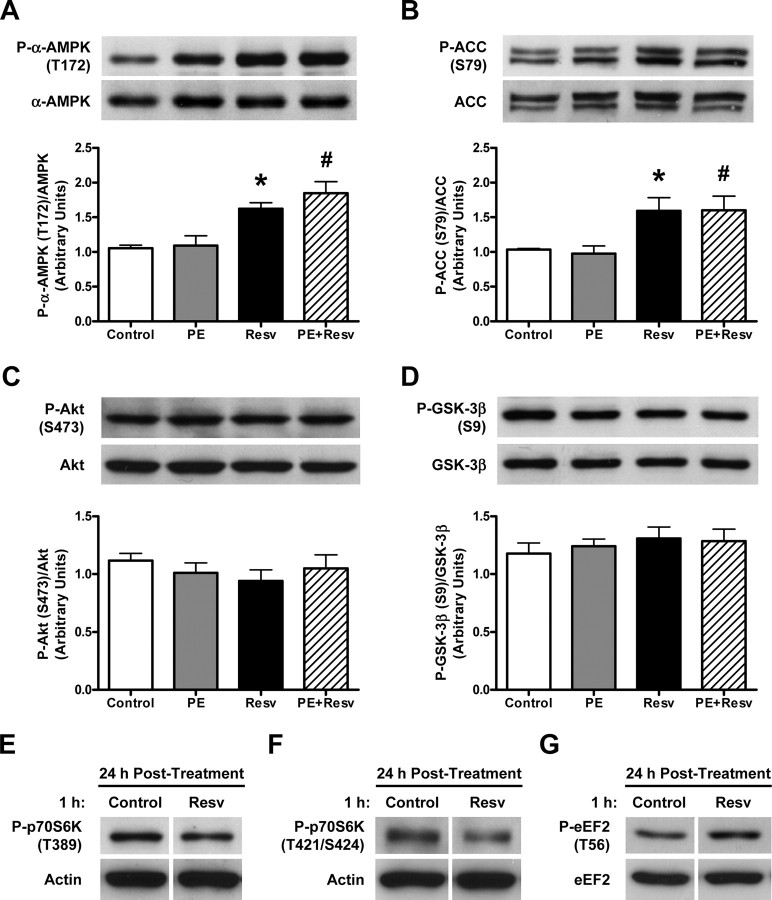FIGURE 2.
Chronic resveratrol treatment increases AMPK and ACC phosphorylation without changing Akt and GSK-3β phosphorylation, while acute treatment has lasting effects on p70S6K and eEF2 phosphorylation levels. A-D, representative immunoblot and densitometry of cellular extracts from neonatal rat cardiac myocytes treated with ethanol (Control) or 50 μm resveratrol (Resv), in the absence or presence of 10 μm phenylephrine (PE) for 24 h. Values are expressed as means ± S.E. and analyzed with the Kruskal-Wallis test followed by Dunn's multiple comparisons test. A, cell lysates blotted with anti-phospho-α-AMPK (T172) and anti-α-AMPK antibodies; *, p < 0.01 versus Control; #, p < 0.05 versus PE (n = 9-10). B, cell lysates blotted with anti-phospho-ACC (S79) antibody and peroxidase-labeled streptavidin, which detects both isoforms of ACC (upper and lower bands) and were quantified together; *, p < 0.05 versus Control; #, p < 0.05 versus PE (n = 5-7). C, cell lysates blotted with anti-phospho-Akt (S473) and anti-Akt antibodies (n = 9). D, cell lysates blotted with anti-phospho-GSK-3β (S9) and anti-GSK-3β antibodies (n = 9). E-G, representative immunoblot of cellular extracts from neonatal rat cardiac myocytes treated with ethanol (Control) or 100 μm Resv for 1 h, followed by 24 h of incubation with serum-free medium (n = 4). E, cell lysates blotted with anti-phospho-p70S6K (T389) and anti-actin antibodies, (F) anti-phospho-p70S6K (T421/S424) and anti-actin antibodies, and (G) anti-phospho-eEF2 (T56) and anti-eEF2 antibodies.

